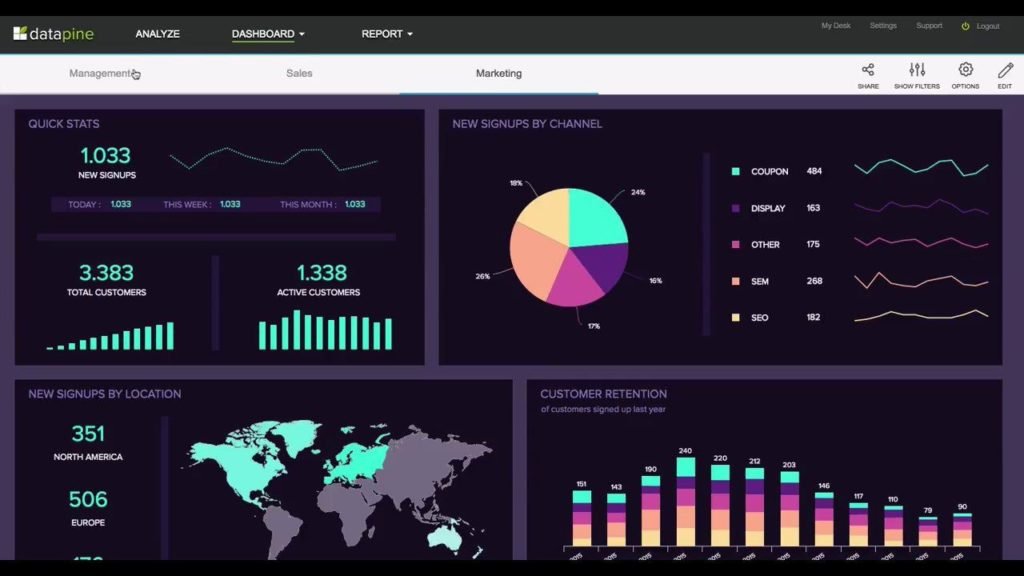SQL, the programming language, is the best companion for data analysts. SQL means Structured Query Language, which helps companies to build tools that can easily garner data from their databases.
This is a valuable tool to analyze the data and make appropriate decisions based on them. Since data analysis is crucial for finding the trends and predicting them for the long-term benefits of the institutions. So data analysis using SQL is significant to get quality data from the database.
What is SQL for Data Analysis?
A data analyst can easily access the data using SQL and read or manipulate them as needed. It is further used for analyzing the selected and stored data to get the right insights that will be beneficial for the business.
SQL uses some basic techniques involved with it for achieving these said tasks. It also has a set of five commands to control, manipulate and analyze the data.
Those having a basic degree or certificate such as the Post Graduate Program in Data Analytics can easily follow the instructions or handle this program comfortably.
- SQL is used for scripting Data Integration Scripts and is a widely used tool by Database Administrators.
- It is used for handling analytical queries to get insights.
- It is useful for the modification of data like deletion, insertion, or updating of the databases.
How beneficial is SQL for Data Analysis?
SQL is a data management language that stores data in a table format. It is easy to find data and build custom models for the business. The data management here is precise and shows optimum results.
SQL is ideal not only for data storage, it can also process, retrieve, and analyze the data as well as get insights from it, no matter how complex it is. The main reasons why SQL is beneficial for data analysis are,
- SQL for data analysis is a user-friendly language and is quite easy to learn or understand.
- It can efficiently process and retrieve from any of the various databases associated with it.
- SQL follows the standard documentation so that users can handle it well.
- It is a widely used tool.
- It’s useful for testing and manipulation of the data as well.
- You don’t need any coding experience to handle SQL
- It is completely portable and usable across all devices.
Limitations of SQL for Data Analysis
SQL is not without errors, it has its own set of limitations.
- The lack of a user interface often makes it challenging when dealing with larger size of databases.
- It is difficult to do complex statistical analysis.
- SQL will be inadequate for handling unstructured data as it requires the data to be in table format and that from the column format will not be compatible.
- There are certain versions of SQL that are inaccessible for many users as they are expensive.
Where to learn SQL Programming?
There are several online courses available for both freshers and working professionals to excel at this programming language. One of the best courses is the Post Graduate Program in Data Analytics & Machine Learning at Imarticus. This course is available separately for freshers and professionals to suit their schedules. The classes will be conducted on weekdays or weekends as per choice.
The curriculum will be different according to the chosen program. The learning process includes multiple in-class projects from the real world so that the candidates are industry ready for the jobs. There will also be preparation workshops, personalized mentoring, and mock interviews.

